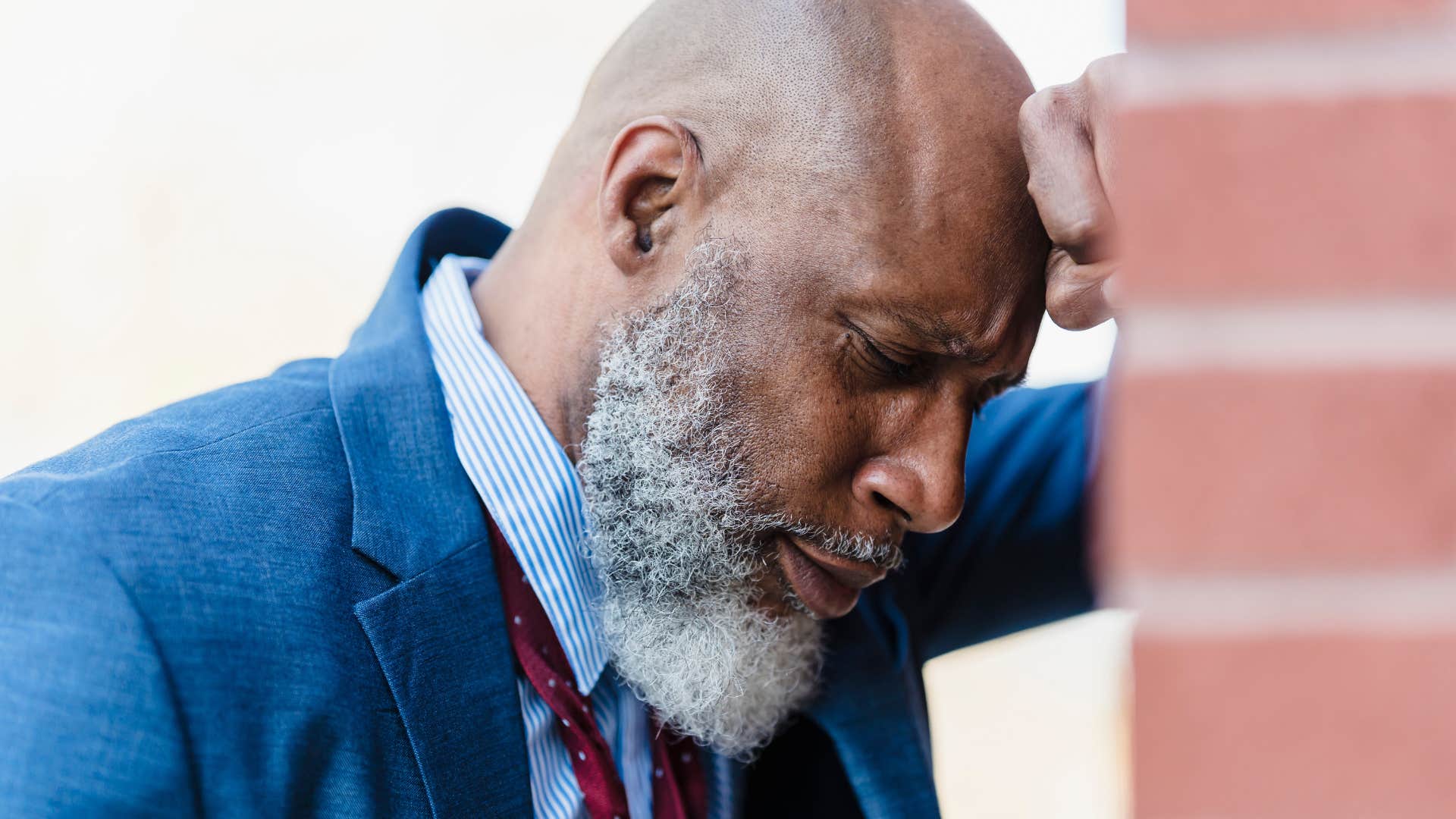People Who Hate Pretty Much Everything Usually Have These 11 Reasons
There’s often a story behind negativity that, at first glance, seems automatic.
 PeopleImages.com - Yuri A / Shutterstock
PeopleImages.com - Yuri A / Shutterstock Some people seem to dislike nearly everything — new music, old traditions, popular shows, modern slang, social events, restaurants, holidays, you name it. It can feel draining to be around someone who’s perpetually unimpressed or always pointing out what’s wrong. However, what appears to be relentless negativity on the surface often masks something deeper. These kinds of reactions are usually more about inner conflict than they are about the actual things being criticized.
People who "hate everything" are rarely doing it just to be difficult. In many cases, it’s the emotional version of a defense mechanism, a way to regain control, express disillusionment, or shield themselves from vulnerability. They’ve often been let down by people or systems they once trusted, and now their instinct is to expect the worst, dismiss the best, and remain untouched by it all. If someone in your life, or even you, has been unusually negative lately, it might be worth looking past the surface. Here are 11 common reasons people fall into that mindset.
People who hate pretty much everything usually have these 11 reasons
1. They've learned to expect disappointment before it has a chance to surprise them
 Nicola Barts from Pexels via Canva
Nicola Barts from Pexels via Canva
When someone has been let down repeatedly, they often stop hoping for good things altogether. Preemptive negativity becomes a coping strategy: if they assume the worst, they won’t be hurt when something fails to meet expectations.
This habit can take root early, especially if they grew up in environments where optimism was punished with reality checks. Over time, their default setting shifts toward cynicism, not because they enjoy it, but because it feels safer than being vulnerable to hope.
2. They struggle with chronic irritability, which is often linked to depression
 SeventyFour from Getty Images via Canva
SeventyFour from Getty Images via Canva
Persistent negativity can be a symptom of an underlying mood disorder. According to the National Institute of Mental Health, irritability and persistent dissatisfaction are common signs of depression, particularly in men.
People in this state may feel emotionally numb or constantly on edge, reacting to life as if everything is an annoyance because, internally, they feel trapped or depleted. What comes across as hate may actually be a cry for help or a sign that they’re emotionally exhausted.
3. They view the world through a lens of mistrust
 Vladimir Vladimirov from Getty Images Signature via Canva
Vladimir Vladimirov from Getty Images Signature via Canva
People who constantly criticize others often carry deep skepticism about human nature. They may have been betrayed, manipulated, or dismissed too many times, so they assume bad intentions before giving anyone the benefit of the doubt.
Their negativity functions as a filter that protects them from disappointment but also isolates them. As research shows, individuals with high levels of interpersonal distrust tend to report lower life satisfaction and more social isolation over time.
4. They feel powerless in their own lives, so they look for control wherever they can find it
 Minerva Studio via Canva
Minerva Studio via Canva
Disliking things can become a way of reclaiming a sense of authority. If someone feels stuck in their work, relationships, or sense of identity, they may express judgment or rejection as a subtle form of rebellion.
Disapproval makes them feel like they still have a choice, even if it’s only to say “no.” Unfortunately, this pattern often becomes automatic and self-reinforcing, leading to alienation and resentment rather than relief.
5. They mistake detachment for wisdom
 mauro_grigollo from Getty Images Signature via Canva
mauro_grigollo from Getty Images Signature via Canva
Some people equate cynicism with intelligence, believing that to be impressed or moved by something is a sign of gullibility. This can lead them to criticize everything, even things they secretly enjoy. It’s a shield disguised as discernment.
But while skepticism can be healthy, a constant need to appear unimpressed often reveals an underlying fear of being seen as naive or emotionally vulnerable.
6. They’ve been emotionally burned by enthusiasm in the past
 Pressmaster via Canva
Pressmaster via Canva
Many people who act disinterested or unimpressed used to be deeply enthusiastic about something or someone. When those hopes were shattered, they didn’t just lose interest; they lost the part of themselves that felt safe expressing it.
Now, they downplay everything as overrated or not for them, because they can’t risk feeling that kind of disappointment again.
7. They have difficulty feeling joy, often due to anhedonia
 Liza Summer from Pexels via Canva
Liza Summer from Pexels via Canva
Anhedonia, the inability to experience pleasure, is a clinical symptom of several mental health conditions, including major depressive disorder. People with this condition might genuinely be unable to feel enjoyment even in situations where most people would.
According to Harvard Health, this neurological shutdown can affect how people respond to social interactions, art, food, or leisure activities. So when someone hates everything, it might not be a personality issue. It could be their brain struggling to generate a reward response.
8. They fear being perceived as basic or predictable
 Blvckshot via Canva
Blvckshot via Canva
Some people reject popular trends or socially accepted favorites because they equate uniqueness with value. If something is widely loved, they assume it must be shallow or unoriginal, and they want to make sure everyone knows they’re above it.
This can come from deep insecurity around identity, where being different feels like the only way to matter. Ironically, this rejection of the mainstream often becomes just as predictable as the trends they mock.
9. They’re deeply uncomfortable with vulnerability, even in small doses
 Alex Green from Pexels via Canva
Alex Green from Pexels via Canva
To truly enjoy something, especially in public, requires a certain level of openness. It invites connection, emotion, and sometimes even a little silliness. People who hate everything often shut that down before it can start.
They're uncomfortable with the idea of being moved, surprised, or caught enjoying something uncool. Negativity becomes a shield that keeps others from getting too close and keeps them from accidentally revealing how much they might actually care.
10. They subconsciously enjoy the identity of being a contrarian
 PeopleImages from Getty Images Signature via Canva
PeopleImages from Getty Images Signature via Canva
Negativity can easily become part of someone’s self-image. If they’re known for being critical or sarcastic, it creates an expectation they feel compelled to fulfill. Complaining becomes a kind of performance, a way to feel sharp or superior.
And while they may not even realize it, they begin to rely on that identity to navigate the world, even when it stops serving them or ultimately makes them feel worse.
11. They’re lonely, and it’s easier to push people away than admit they need them
 Keira Burton from Pexels via Canva
Keira Burton from Pexels via Canva
For some, expressing constant dislike is a strange way of keeping people around by sparking debates, being provocative, or standing out. But beneath that, there’s often a deep sense of isolation.
Negativity becomes a wall that both repels and attracts, inviting attention without intimacy. The tragedy is that the more they act this way, the harder it becomes for anyone to get close enough to see what’s really going on.
Sloane Bradshaw is a writer and essayist who frequently contributes to YourTango.

